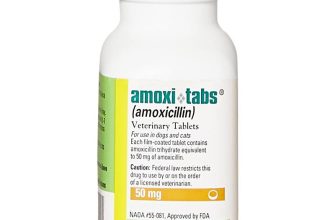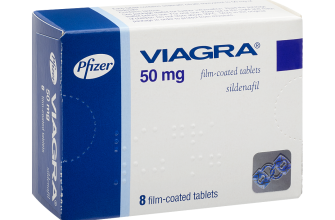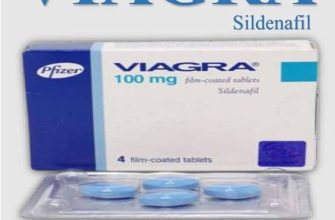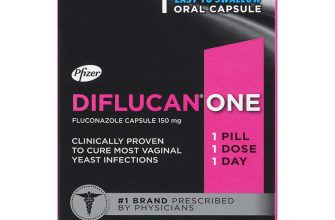To navigate the complexities of the Accutane Prescriptions Act, it is crucial for healthcare providers to stay informed about the guidelines and regulations governing isotretinoin prescriptions. This act primarily aims to ensure patient safety and effective monitoring by mandating stringent prescription protocols.
Healthcare professionals must familiarize themselves with the risk management strategies associated with isotretinoin. Mandatory registration in the iPLEDGE program is essential, as it helps to prevent exposure to the drug during pregnancy and supports the safe use of Accutane for patients with severe acne. Ensuring that both prescribers and patients understand these requirements dramatically lowers the risk of adverse outcomes.
Patients receiving Accutane prescriptions should undergo regular screenings and follow-up appointments. These interactions allow for the monitoring of side effects and prompt adjustments in therapy if necessary. Encouraging open communication about any changes in health status can significantly enhance treatment outcomes and patient satisfaction.
By adhering to the Accutane Prescriptions Act, healthcare providers contribute to a safer and more effective approach in treating severe acne while safeguarding patient interests. Staying informed about these regulations ensures that prescribers can offer the best possible care while minimizing risks associated with the medication.
Accutane Prescriptions Act: A Detailed Overview
The Accutane Prescriptions Act mandates strict regulations for prescribing isotretinoin, marketed as Accutane. Healthcare providers must adhere to specific guidelines to ensure patient safety. Before prescribing, doctors must confirm that patients are informed about the potential risks, particularly regarding teratogenic effects.
Female patients of childbearing age must undergo a pregnancy test prior to starting treatment. They should use two forms of contraception for at least one month before, during, and one month after treatment. This protocol aims to prevent any unintended pregnancies, as isotretinoin can severely affect fetal development.
Regular follow-up appointments are required to monitor the patient’s condition and assess any side effects. Blood tests to check liver function and lipid levels are usually conducted monthly, as isotretinoin can cause significant changes in these areas.
Pharmacists play a critical role in the Accutane Prescriptions Act. They must verify that patients have completed the necessary counseling and understand the prescription requirements. This includes confirming that patients are enrolled in the iPLEDGE Program, designed to manage the distribution of isotretinoin and ensure adherence to safety measures.
Compliance with the Accutane Prescriptions Act is essential for mitigating risks associated with isotretinoin treatment. Providers and patients should remain vigilant in following these guidelines to achieve the desired treatment outcomes while safeguarding health.
Understanding the Key Regulations Surrounding Accutane Prescriptions
Healthcare providers must adhere strictly to the iPLEDGE program when prescribing Accutane (isotretinoin). This program aims to prevent fetal exposure to the drug, which can lead to severe birth defects. Both prescribers and patients need to understand their specific responsibilities within this framework.
Prescribers must register with iPLEDGE and confirm that patients meet the necessary criteria before initiating treatment. A negative pregnancy test is mandatory for female patients of childbearing age, taken within one week prior to starting the medication. This requirement ensures that only non-pregnant individuals receive prescriptions.
Patients must also enroll in iPLEDGE, agreeing to use effective birth control during treatment and for one month after discontinuation. They cannot receive more than a 30-day supply of Accutane at a time without returning for follow-up visits and further testing. This regulation helps monitor their health and adherence to safety measures.
Pharmacies dispensing isotretinoin must verify patient enrollment in iPLEDGE before filling prescriptions. They have access to a system that ensures compliance with the program’s requirements. This additional layer of oversight further mitigates risks associated with the medication.
Documentation is critical throughout the process. Healthcare providers should maintain accurate records of consultations, pregnancy test results, and patient agreements. This practice supports accountability and promotes safety in prescribing.
By following these guidelines, healthcare professionals can effectively manage the risks related to Accutane and provide patients with safe treatment options for severe acne. Staying informed about regulatory updates is equally important to ensure compliance and maintain patient safety.
Implications for Healthcare Providers and Patients in Accessing Accutane
Healthcare providers must prioritize thorough patient assessment before prescribing Accutane. Initiate discussions about medical history, including previous treatments, mental health status, and potential risks associated with isotretinoin.
- Require patients to sign an informed consent form emphasizing the risks, particularly pregnancy-related ones.
- Schedule regular follow-up appointments to monitor for side effects and evaluate treatment efficacy.
- Advise patients on the importance of adhering to strict birth control measures during treatment and for a period after stopping the medication.
For patients, understanding the prescription process is crucial. They should:
- Communicate openly with healthcare providers about their health history and any medications currently taken.
- Engage in discussions regarding their expectations and concerns about the treatment.
- Be prepared for regular lab tests to monitor liver function and lipid levels throughout the treatment course.
Accessing Accutane also involves understanding the iPLEDGE program. Patients must register in this system to comply with safety protocols. They should:
- Complete the necessary steps to enroll before receiving a prescription.
- Return for check-ups as mandated by the program to ensure continued eligibility for the medication.
Clear communication and education can significantly enhance the safety and effectiveness of Accutane treatment for both healthcare providers and patients, creating a more informed and collaborative approach to managing severe acne.










